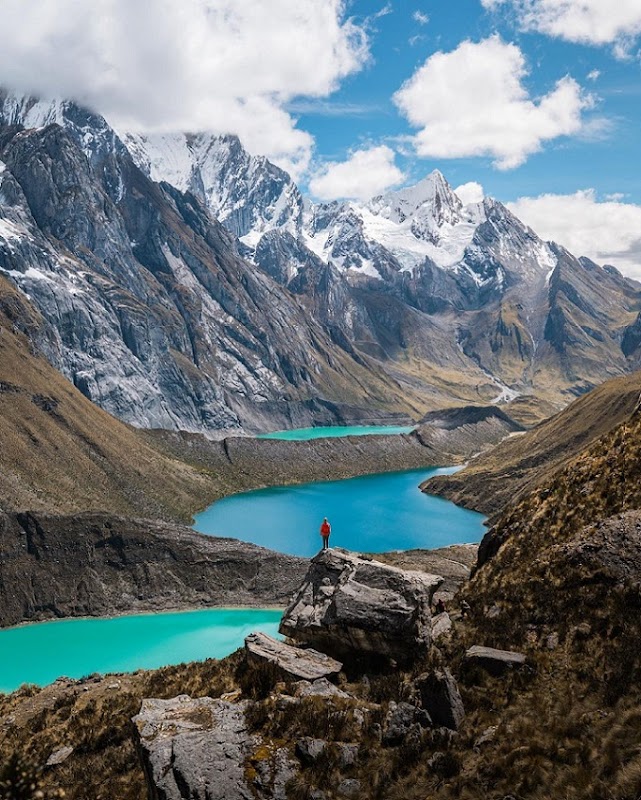
The Yarinacocha Cultural Festival offers visitors a vibrant, accessible immersion in the Amazonian traditions of Peru’s Ucayali region. Experience live music, dance, crafts, and local cuisine along the shores of Lake Yarinacocha while enjoying a unique cultural landscape that is both practical to explore and rich in heritage.
Wear Grippy Footwear
Paths near Yarinacocha’s lakeshore can become wet and slippery, especially during sudden rain—shoes with good traction help avoid slips and minor injuries.
Stay Hydrated in the Humidity
The rainforest’s humidity works fast. Carry at least 2 liters of water daily to prevent dehydration during your explorations and festival attendance.
Timely Arrival for Events
Arrive early to catch cultural processions and canoe races—they usually start by mid-morning and are highlights not to be missed.
Respect Local Customs
Interact with artisans and locals respectfully; photography requests should be polite, and supporting local arts helps sustain traditions.
Embracing Tradition: The Yarinacocha Cultural Festival in Ucayali
Each year, the Yarinacocha Cultural Festival draws visitors deep into the heart of Peru’s Ucayali region, a place where the mighty Amazon whispers through the trees and local communities ignite their heritage with vivid celebrations. Yarinacocha itself sits on the river of the same name—a waterway that dares you to slow down and absorb its presence. The festival invites adventurers and culture seekers alike to witness indigenous traditions performed with pride, accompanied by music, dance, and crafts that breathe life into ancient roots.
Held on the shores of Lake Yarinacocha, this festival is more than a gathering: it’s an encounter with a people fiercely connected to their land and history. The air hums with energy as the rhythms of flutes and drums echo through open spaces, weaving together stories of the Shipibo-Conibo communities and others around. The terrain here is flat, making the festival easy to access on foot or by boat, but the environment remains vibrant with the pulse of the rainforest just beyond.
Navigating the festival grounds offers practical ease, but preparation pays off. Lightweight, breathable clothing is essential; afternoon rains sometimes surprise visitors between July and September. Footwear that grips is a good call—paths can become slick as the lake edges shift under tropical weather. Staying hydrated is critical: the Amazon’s humidity invites exhaustion faster than you expect, so carry water bottles or plan to buy from local vendors.
Beyond sensory delights, the festival offers hands-on experiences. Craft stalls invite you to touch and purchase intricate woven textiles and pottery, supporting local artisans. Culinary stalls reveal flavors forged with native ingredients—a contrast of familiar and distinctly Amazonian spices. Timing your visit mid-festival means catching the grand processions and vibrant canoe races, contests showcasing strength and skill as competitors push against currents that challenge and reward.
For explorers seeking more, the area around Yarinacocha beckons, with informal trails that thread between villages and forest fringes. These walks bring you closer to the surrounding wildlife: parakeets call overhead, and shy caimans slip from the water’s edge unseen. Respecting the environment is part of the experience—trash management and mindful interaction are practiced by locals and expected of visitors.
In short, the Yarinacocha Cultural Festival offers a clear window into Amazonian life charged with beauty and resilience. Adventure here doesn't ask for grand climbs or distant wanderings but rewards those who embrace connection with place and people. Whether you come for the music, the crafts, or the chance to touch Amazonian culture firsthand, preparation will turn your visit into an informed, invigorating journey.
Nearby Trips
All Adventures
Boat Charters
Water Activities
Adventures near Yarinacocha, Ucayali
Discover the unique and memorable adventures that make Yarinacocha, Ucayali special.
Frequently Asked Questions
What is the significance of the Yarinacocha Cultural Festival?
The festival celebrates the traditions of the Shipibo-Conibo and other indigenous communities around Lake Yarinacocha, showcasing their music, dance, crafts, and spiritual connections to the Amazon.
Is the festival suitable for families and all age groups?
Yes, the festival offers kid-friendly activities, crafts, and safe walking areas. It’s accessible and welcoming to visitors of all ages, though supervision is advised near water.
Are there opportunities to participate in workshops or crafts?
Absolutely. Artisans frequently conduct hands-on weaving, pottery, and painting workshops, providing insight into their traditional techniques.
How can visitors travel between Pucallpa and Yarinacocha?
Pucallpa is only a short boat ride or taxi trip from Yarinacocha, making daily travel convenient. Many accommodations are in Pucallpa, serving as a perfect base.
What wildlife might I encounter during the festival?
Expect to see vibrant parrots, toucans, and possibly the occasional caiman near the water’s edge. Early mornings are best for quiet wildlife observing.
Are there any environmental concerns or regulations during the festival?
Organizers promote waste reduction and respect for the natural surroundings. Visitors should avoid littering and stay on marked paths to preserve the rainforest buffer zones.
Recommended Gear
Comfortable Walking Shoes
Shoes with sturdy soles and good grip protect against wet and muddy paths around the festival area.
Light Rain Jacket
Sudden showers are common; a compact rain jacket keeps you dry without overheating.
Reusable Water Bottle
Staying hydrated is crucial in humid conditions; a refillable bottle reduces plastic waste.
Sun Protection
Broad-brimmed hats and sunscreen safeguard you from strong rainforest sun, especially during dry season.
Local Insights
Hidden Gems
- "A quiet lookout point on the east bank offers panoramic views of Lake Yarinacocha and the river’s twists, a perfect spot for reflection away from crowds."
Wildlife
- "Watch for the elusive Amazon River dolphin in nearby waters during boat rides, and listen for the rhythmic calls of cicadas filling the evenings."
History
"The festival honors centuries-old indigenous customs resisting colonial pressures, maintaining cultural identity through song, dance, and craft traditions."
